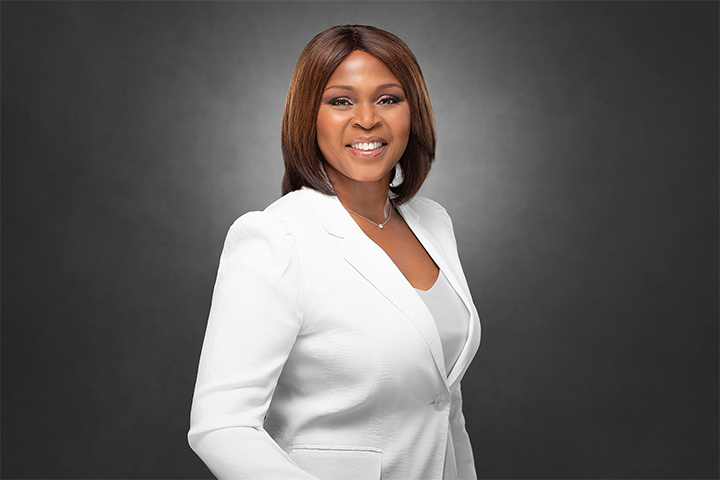By Rachel Hastings
12 July 2021

At first glance, Patricia Cornet doesn’t fit the typical profile of a participant in Tuck’s Building a Successful Diverse Business program. As Group Director and Lead for Community Research Partnerships, US Medical Affairs, at Bristol Myers Squibb (BMS), Cornet’s challenges seem quite different than those of the entrepreneurs and suppliers who make up the bulk of DBP’s attendees. Yet, for Cornet, the program delivered not only insight into the value of a diverse supply chain but also an unexpected shift in her perspective on running a department at the global pharmaceutical company.
Cornet, who has close to two decades of experience in the pharmaceutical industry in the US and China, came to Building a Successful Diverse Business as part of Bristol Myers Squibb’s longstanding partnership with Tuck. Through its robust supplier diversity initiative, BMS regularly sends suppliers through the program. They also send select leaders, like Cornet, to the Tuck program in recognition of the fact that running a business area is much like operating a small company.
“At BMS, there is a belief that each employee contributes to the overall growth of the business and to its impact on patients,” Cornet explained, “since everyone contributes to the success of the company, it’s important to understand business drivers and ways to improve efficiencies in our processes that influence delivering therapies to patients.”
The DBP program, Cornet said, provided a window into the concerns of company leadership. “There are parts of the business that I’m not accountable for, while a small business owner has to do everything, from soup to nuts. The program gave me an understanding of what the senior leadership is thinking about and some of the behind-the-scenes drivers that go into what shows up onto our annual report.”
Some of those learnings, she noted, were unexpected. “Accounting is not a sexy topic, but Professor Phil Stocken did a phenomenal job keeping us engaged and taking very complex mathematics and business planning and really simplifying it.” Though Cornet did not enter the program with a focus on accounting, she said, Stocken “reinforced the importance of cash accounting with the phrase ‘cash is king,’ which stuck with me. As a result, I changed how we track our budget expenses. I’ve also enhanced how we position what my group does to increase funding opportunities.”
As a leader in a highly specialized industry, Cornet was struck by the range of industries represented by DBP participants and by their unique points of view. “A diverse supplier to me means ethnicity, race, and gender, but the people in the room also represented a mix of different business sectors, and that in itself creates an education,” she said. “That was a big takeaway for me—to continue to bring new ideas to what I’m doing from beyond my own sector. I came back thinking very differently about my team makeup and what is affecting customers.”
The business owners in Cornet’s cohort also gave her an inside look at the challenges smaller suppliers face, as well as the unique strengths that they bring to the table. “I think diverse suppliers, especially small business owners, are really on the cutting edge,” Cornet said. “They do a much better job of cutting through the red tape and the extra steps that can come with working in a larger company. And some of the organizations, like the ones I partner with now, have such a good connection to the community, to grassroots efforts, and to the patients and their perspectives. Suppliers and organizations like that challenge us to get out of our comfort zones and think a little differently.”
BMS is proud of its practice of sponsoring suppliers to participate in Tuck programs and what it helps accomplish. By investing in supplier diversity development, businesses enhance their supply chain, build relationships with the diverse business community, and visibly demonstrate their commitment to strengthening minority businesses. “It’s fantastic that corporations are doing their part to support the diversity of suppliers,” Cornet said. “At the end of the day, diversity has a direct impact on our bottom line, and the overall business is strengthened. It builds your relationships and makes them more effective.”
It’s a lesson that Cornet has taken to heart. “Since the program, I’ve been able to bring two additional diverse suppliers into my work. I have an increased focus on looking for diversity in my suppliers whenever I’m a decision-maker.”
